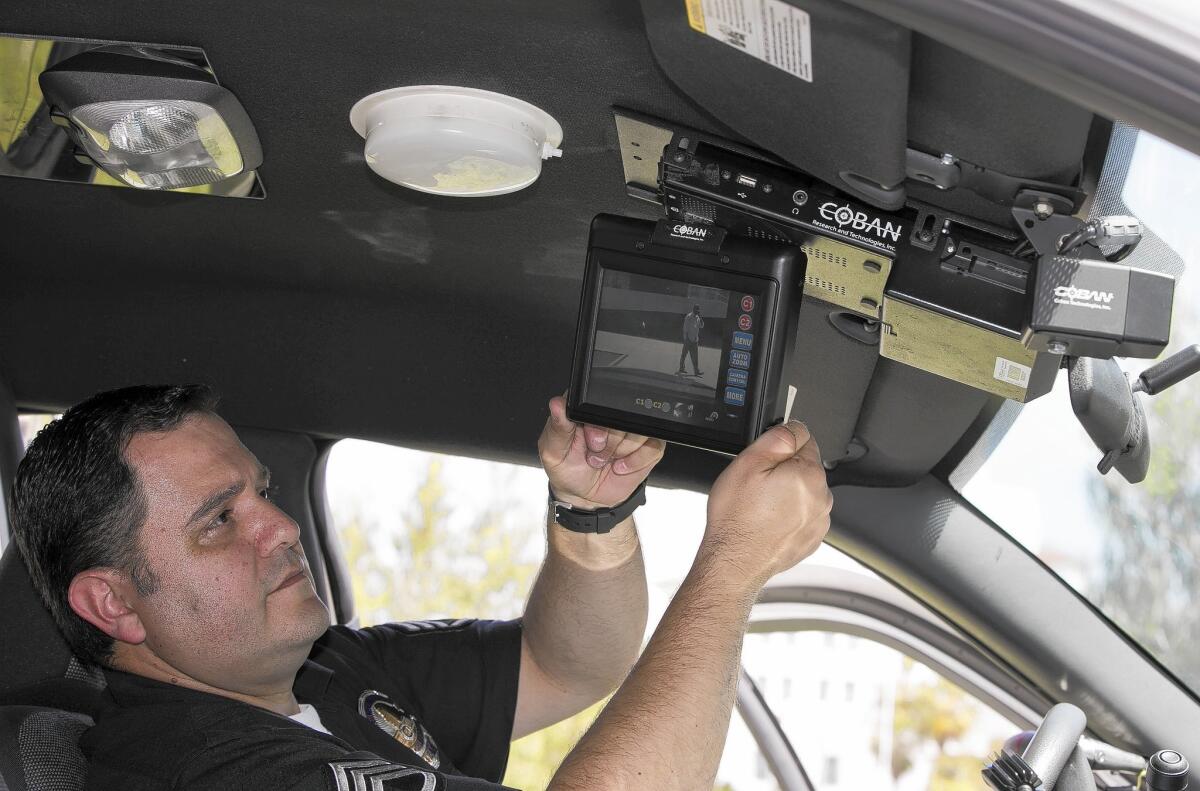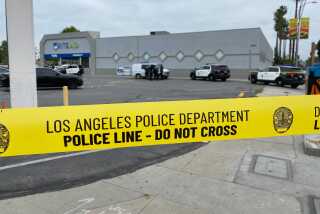Readers React: No to military equipment for cops, yes to cameras in patrol cars

- Share via
To the editor: Saturday’s front page included an article about the increased militarization of U.S. police departments alongside the one about the inability of the Los Angeles Police Department to install cameras in all patrol cars. (“LAPD’s in-car camera effort is lagging,” Aug. 15)
Billions of dollars’ worth of military weaponry, including assault rifles and armored vehicles, is donated by the Pentagon to any police department that can pick up the equipment; yet some departments can’t afford the relatively few millions it would cost to put video cameras in their vehicles.
What is wrong with our military budget when we can afford to give away usable weapons and equipment? Why can’t the Pentagon order fewer vehicles and guns so the federal grants that would fund patrol car cameras could be more substantial?
The accountability for both police and civilian behavior provided by the patrol car cameras might help alleviate the need for the militaristic policing of our communities.
Susan Talbot, Los Angeles
..
To the editor: Is a person who is attempting to take an officer’s gun from him by force a threat to the officer such that deadly force in response is justified? For most people, this is a rhetorical question. (“Ferguson, Mo., and L.A.: Two police shootings, one common thread,” Editorial, Aug. 14)
Initial reports on the shooting of Ezell Ford by Los Angeles Police Department officers contend that Ford was trying to take the officer’s gun. It’s bewildering that The Times contends those facts are simply an officer shooting an “unarmed man.” It’s also worth noting that there is no constitutional right to resist a lawful arrest.
Per department policy and law, deadly force can be used to stop a threat to an officer’s life. So, let me answer The Times’ apparently non-rhetorical question:
“When a person attempts to take an officer’s gun from them, no matter their physical or mental condition, we should expect an officer to respond accordingly to save his or her own life — and that likely includes the use of deadly force.”
Tyler Izen, Granada Hills
The writer is president of the Los Angeles Police Protective League.
..
To the editor: Clearly our mental health system is broken when law enforcement is the first responder to mentally challenged people.
It is vital for law enforcement at all levels to be properly trained to interact with the mentally ill in a way that is both safe and effective. These interactions are inevitable and should not result in injury or death to either party.
The recent incidents filling the news these days where mentally ill people have been beaten or killed should not be accepted as unavoidable. Law enforcement is there to protect and serve everyone, even irrational and troubled individuals.
Please think of these troubled individuals as someone’s loved one — a parent, a child, a human being. Surely there is a way to deal with these situations without it escalating to extreme harm or death.
Denise Frey, Santa Barbara
More to Read
A cure for the common opinion
Get thought-provoking perspectives with our weekly newsletter.
You may occasionally receive promotional content from the Los Angeles Times.






